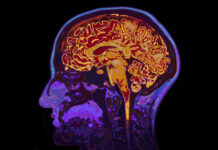Antidepressant Use Does Not Prevent Suicide, Study Finds
A new study has found that antidepressants are ineffective for reducing suicide attempts. Researchers report that the risk of suicide is particularly high in the first month after starting an antidepressant.
New Rating Tool for Tapering Antidepressants and Antipsychotics
Researchers developed a rating scale to better assess service users’ experiences tapering antidepressant and/or antipsychotic medication.
What Helps Long-Term Users of Benzodiazepines and Z-Drugs Discontinue?
Current long-term users of benzodiazepines and Z-drugs identify barriers and facilitators for discontinuation.
Pharma CEO, Others Attempt Contradictory Critiques of Serotonin-Debunking Study
Moncrieff et al. respond to the contradictory and, in some cases, false concerns raised by these critics of their serotonin review.
Breaking Blind: Antipsychotic Drug Efficacy May Be Overestimated
Only 4 of 188 antipsychotic trials assessed blinding, and in all 4 cases, the blind was broken, potentially leading to an overestimation of the drug effect.
Psych Med Prescribing After Perinatal/Neonatal Death
Research from MIA blogger Jeffrey Lacasse finds that "at present, there exists no rigorous evidence to support the prescription of Ads (antidepressants) in bereavement....
What Animal Research Says About Sexual Side-effects of SSRIs
A group of researchers in Denmark examines what existing animal studies can tell us about the sexual side-effects of SSRI antidepressants.
Genetic Markers do not Predict Response to Antidepressants
Researchers from 11 nations in Europe and North America find, in the largest study to date of possible links between genetic markers and antidepressant...
Only One of Five Key Xanax Trials Deemed Positive by F.D.A.
The published literature is misleading, as the negative Xanax trials either went unpublished or were spun to appear positive.
How Do Antidepressants Really ‘Work’?
A recent review, published in Neuroscience & Biobehavioral Reviews, challenges the dominant assumptions about the neurochemical and therapeutic effects of Selective Serotonin Reuptake Inhibitors...
Clozapine-induced Stuttering Affects 1% Of Patients
A team of psychiatrists reviewed 654 cases in West Ireland to find that nearly 1% of all patients taking the antipsychotic clozapine had experienced clozapine-induced stuttering.
Brain Response to Antidepressant Mirrors Placebo Effect
People diagnosed with severe depression show the same changes in brain scans when they respond to a placebo as they do when they take an actual antidepressant, according to a new study. Researchers also found that those whose symptoms were decreased by a placebo were more likely to report relief from antidepressant drugs.
Maternal Antidepressant Use Tied to Autism
In a major study, published yesterday in JAMA Pediatrics, the use of SSRI antidepressants during pregnancy was found to increase the risk of autism spectrum disorder (ASD) by 87-percent. Previous studies reveal that more than 13-percent of women currently use SSRI antidepressants during pregnancy.
ADHD Drugs Linked to Psychotic Symptoms in Children
Stimulant medications like Ritalin and Adderall, often prescribed to treat children diagnosed with ADHD, are known to cause hallucinations and psychotic symptoms. Until recently these adverse effects were considered to be rare. A new study to be published in the January issue of Pediatrics challenges this belief, however, and finds that many more children may be experiencing psychotic symptoms as a result of these drugs than previously acknowledged.
Lancet Psychiatry Needs to Retract the ADHD-Enigma Study
Lancet Psychiatry, a UK-based medical journal, recently published a study that concluded brain scans showed that individuals diagnosed with ADHD had smaller brains. That conclusion is belied by the study data. The journal needs to retract this study.
UPDATE: Lancet Psychiatry (online) has published letters critical of the study, and the authors' response, and a correction.
Two-Thirds of Schizophrenia Patients Do Not Remit on Antipsychotics
A new analysis of antipsychotic treatment of schizophrenia (published in Schizophrenia Bulletin) has found that two-thirds of patients treated this way do not experience symptom remission.
Researchers Search for Subgroups Where Antidepressants Are More Effective
The researchers theorized that this increased effectiveness was due not to “antidepressant” properties, but rather to the drug’s side effects, which include insomnia, drowsiness, and nausea.
Researchers Push to End Placebo Run-in Periods in Antidepressant Studies
Meta-analysis finds that the placebo run-in methodology reduces the placebo effect and finds antidepressants to be less useful.
Benzos Quadruple the Risk of Suicide in Schizophrenia
Finnish researchers found that among 2,588 patients hospitalized for the first time with a diagnosis of schizophrenia, benzodiazepine use predicted almost 4x the rate...
More Evidence That Antipsychotics Shrink the Brain
European researchers who reviewed 43 imaging studies of first-episode psychosis found evidence that antipsychotics cause a decrease in gray matter volumes in the brain....
A Tale of Two Studies
With increasing evidence that psychiatric drugs do more harm than good over the long term, the field of psychiatry often seems focused on sifting through the mounds of research data it has collected, eager to at last sit up and cry, here’s a shiny speck of gold! Our drugs do work! One recently published study on withdrawal of antipsychotics tells of long-term benefits. A second tells of long-term harm. Which one is convincing?
Childhood Trauma Predicts Lack of Response to Antidepressants
Research in Translational Psychiatry finds that childhood maltreatment and trauma predict a greater likelihood of developing chronic depression, and a reduced likelihood of responding to treatment...
Researchers Push Back Against Recommendation to Combine Antidepressants for Suicide Prevention
Researchers challenge the recommendation of starting two antidepressants simultaneously to increase preventative effects against suicide.
Antidepressants Associated with Preterm Birth, Infant Convulsions
A study of 228,876 pregnancies, published in the July issue of the American journal of Obstetrics & Gynecology, finds that maternal antidepressant use is...
Youth Antipsychotic Use Linked to Increased Risk of Death within Five Years
Those aged 18-24 had an increased risk of death within five years on doses above 100 mg chlorpromazine equivalents.
























